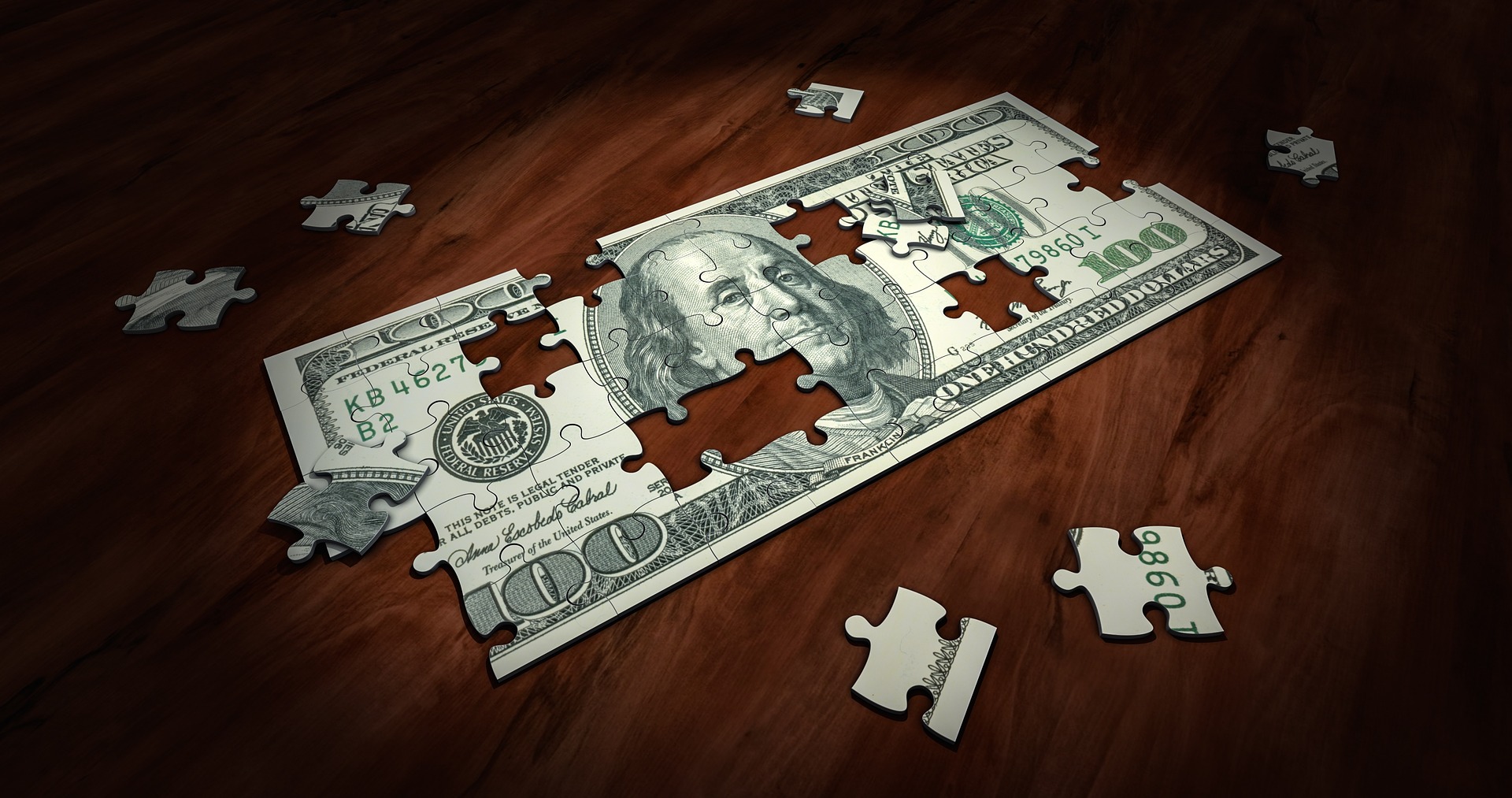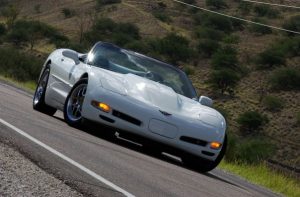I kept a $100 bill in my wallet for 16 years

When I was 17 years old, my dad gave me a crisp new $100 bill. Naturally, I was excited. Free money just materialized into my hands, and that almost never happened. I immediately thought about what I could do with that dough. The things I could buy. Then, my dad told me the devastating news.
As it turns out, he wasn't giving me that $100 bill so I can run out and spend it. No.
The deal was simple: He gave both my brother and me a $100 bill to fold up and stick in the back of our wallets in case of an emergency. If we are ever in a situation where a little fast cash will save our butts, that's what that $100 was for. Not just for spending. It was a little emergency fund that I carried around with me.
Well, damn. "So, you're saying I can't spend it now?"
I kept that $100 bill for 16 years
Back when I lived in Tucson, AZ - and way before I met and married my wife, I played in a locally-grown dodgeball league for adults. Every week, we'd get together in the YMCA gym and throw balls as hard as we could at each other like we did when we were kids.
It was an organized league with teams and schedules. But, it wasn't one of those city-built leagues. This was built from the ground up by a single dude in his early 30s who just loved playing dodgeball. He started it. Secured the venue. Advertised the league and got it off the ground. Eventually, we had plenty of teams and players. It was popular.
Long story short, the league owner was looking for a little extra cash to pay the increased insurance costs required for a league in the city. He asked for donations from the league participants. Nobody volunteered (at least on the spot).
Then, I remembered what had been folded up and sitting in my wallet for all those years. That $100 bill earmarked for emergencies.
"Screw it", I said. I'm making good money, now. As a 33-year-old, I don't need to keep walking around with a Benjamin that my dad gave me when I was a teenager any longer. I decided to give it to a good cause.
I opened up my wallet, took out the $100 and slowly unfolded it. I tried to uncrease it as much as I could, but after 16 years, that sucker was creased for life. But, I did the best I could.
Then, I made the donation. The insurance was paid. And, I felt that $100 went to good use.
Why did I keep that bill for so long?

As you know from my story, I'm far from a natural safer. I've made more mistakes than I could shake a stick at. A month after graduating college, I bought my 1999 Corvette convertible. Later, I bought a Yamaha R1 sportbike and paid over $160 a month in insurance. I lived in a 1,600 house in the suburbs, plenty of space for a family of 4...much less just me, a single person.
I spent a hell of a lot of money on stupid stuff in my life. But for some reason, I kept that damn $100 bill in my wallet for 16 years. Why?
Honestly, I have no idea, but I do have a hypothesis...
That money had a purpose.
Not all my money, mind you. Not even the other bills in that same wallet. No, I'm only talking about that single $100 bill. That particular bill was earmarked for something I thought was important. It was given to me to accomplish a mission, and mentally, I knew I had a responsibility to uphold that mission and not squander it.
Needless to say, I didn't feel that same sense of responsibility with the rest of my money. Hell, all that shit was free game. I'd spend all day long if I wanted.
I wouldn't spend that $100-spot, though. No, that sucker had a purpose. It was off limits.
Give your money purpose

Just like you, your money needs a specific and genuine purpose in life. A reason for its existence. You’re not just going to work to earn a paycheck. If you’re like most of us, you’re at work to earn a living. To provide for your family.
Right?
Even if you love your job, you aren’t just there to do it – unless, of course, you are financially independent and can quit at any time, like one of those "badasses".
This reminds me of the story of, well, me. In the spring of 2004, I graduated with a degree in information technology - a degree I felt best prepared me for income potential, but frankly, also didn't require pursuing an intense degree program.
I moved to the bustling metropolitan area of Northern Virginia, got a job and started earning money. At $55,000 a year right out of college, I was pulling down a respectable salary for someone my age.
I had no real experience with earning money at the time. At least, not that kind of money. My previous high school work included grocery stores and camera shops, hardly earth-shattering paychecks.
In fact, that $100 my dad gave me represented half of one of my high school paychecks.
In other words, I was only experienced with earning small paychecks without a lot of expenses. My first job out of college was also my first exposure to pulling in some serious green. And naturally, I wanted to spend it. Finally, I had a decent income. I was rolling in cash.
Like I wrote about early, about a month after I started my job, I bought a Corvette. Not just a Corvette, but a convertible. Hah! What a ride. It was white with a black ragtop. I treated that sucker like my baby. I upgraded the Vette’s wheels and tires, installed a loud exhaust system and even, years down the line, slapped a supercharger on that baby. It was the baddest and loudest car this side of the Mississippi (okay, maybe just my area, but still…).
But, it wasn’t just loud.
That car pulled more than $50,000 out of my bank account, easily. I sunk money into it every chance I got. Those upgrades just had to be done.
Oh, and expensive camera equipment. And restaurants every single day. Anything I wanted to spend money on, I spent it. It was there for the taking.
I had a problem – but it wasn’t a spending problem.
The root of the problem was my money had no purpose. No reason for sitting in my bank account. No earmark. It just sat there, available. Crisp and smelling like success. I wasn’t doing anything else with it. Why not spend it?
Have you ever heard the phrase “We fill the space we have”? It means that if we buy larger homes, we tend to fill those spaces with stuff – whether we actually need that stuff or not. If we buy smaller homes, we fill it with less stuff. In other words, we don’t need most of the stuff we have.
In the same vein, we spend the money we have. If it’s there, we spend. It’s fun. Especially if it is not earmarked for something bigger and better.
…especially if it has no purpose.
How to give your money purpose
Alright, here we go. It’s the money shot of this blog post – if giving your money purpose is the key to early retirement, how does this happen?
First, consider automation.
The easiest way to earmark your money is to use automation. If your goal is early retirement, automate transfers from your paycheck into your company-sponsored 401k plan. Your company might also match a portion of your contributions, giving you completely free money to help reach your money (and life) goals. And, 401ks reduce your taxable income, too. Gravy on both ends of that train! Hop on and enjoy the ride.
Know where your money is going – You can’t begin to un-screw your financial situation until you realize where your money is going. Budgets can help, but frankly, your bank statement is all you really need to determine where your money is going and, importantly, whether your spending is setting you up to meet, or fail, at your financial goals.
Show me a man’s bank statement, and I’ll tell you what he values.
For example, those damn automated monthly payments for services that you may no longer use are killers. They were for us. Because you don’t have to lift a finger to make those payments, you quickly forget that you’re making them. Bank statements help. Just look at ’em. Can you justify it all?
Give a shit about your future – More critical than most people realize, you need to care about what happens to your future self. Yes, we all want to be “successful”, but what does that mean? Do you actively want to retire early, or are you content with working through the traditional lifespan of a typical worker in our society? In 20 years, do you see yourself living in the same house? Working the same job? Driving the same car? What will change?
For the record, it’s okay if you have no interest in retiring early. But, knowing exactly what you want out of life – whatever that happens to be – will guide your money’s purpose.
Invest – If your company matches 401k contributions, at least contribute that amount. Remember, 401ks are pre-tax money, which means not only is your company shoveling you cold hard cash, but you’re lowering your tax burden by a dollar-for-dollar contribution into your 401k account.
Brokerage accounts work, too. We like Targeted Retirement investment accounts and have heavily utilized their automatic diversification strategy so we don’t have to worry about all that. Seriously, we just throw money into our brokerage account and literally forget it. There’s no secret sauce to getting rich in the market. Besides time. You gotta give it time.
Persistence – Early retirement is easy, but it’s not quick. It takes time, just like most goals worth striving toward. Avoid the rookie mistake of expecting 20% capital gains in the first year of investing your dough. It doesn’t happen that way, even in today’s outrageously lucrative market.
Your life’s purpose takes time, just like your money’s. Don’t expect miracles with your money. Reality doesn’t work that way. Budget and invest. Then, stick with it. I mean stick the hell with it. Keep throwing those greenbacks into your investment accounts. Month after month. Year after year.
That persistence adds up into mountains of cold hard retirement cash.
What about you? Have you ever earmarked some of your cash and actually stuck with it for years and years until you eventually forgot about it? :)